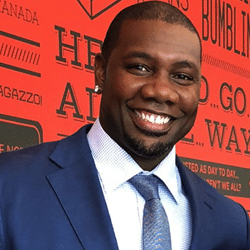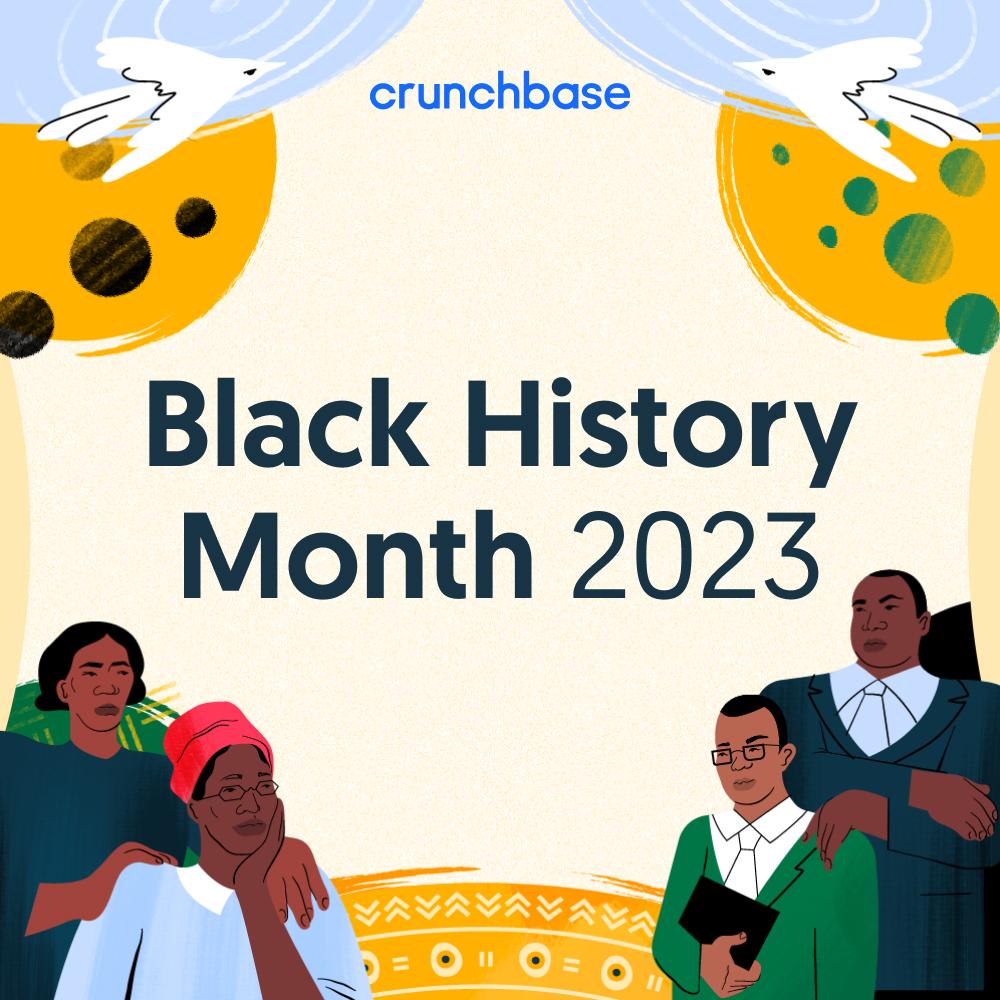Crunchbase Spotlight is a series that celebrates diversity and inclusion in entrepreneurship, venture capital, and tech by profiling people of color, women, and individuals who identify as LGBTQ.


For 13 years, not including time in the Minor Leagues, Howard patrolled first base for the Philadelphia Phillies and was a force in the middle of the batting lineup that pitchers feared. His resume speaks for itself:
- National League (NL) Rookie of the Year Award in 2005
- NL Most Valuable Player Award in 2006
- World Series champion
- Three-time NL All-Star
- Silver Slugger Award
- Hank Aaron Award
- NL Championship Series MVP Award in 2009
- Two-time NL home run champion (2006, 2008)
- Fastest player to reach both the 100 and 200 home run milestones in MLB history
Despite having a successful career with many MLB and franchise records, as the old saying goes, you can’t play forever. In 2018, Howard officially retired from pro ball and embarked on a new adventure. One that would require the same type of dedication, grit, and preparation as baseball did to succeed: venture capital.
I recently had an opportunity to chat with Howard about his MLB career, his life as a Venture Capitalist, and more.
Sunsetting a Hall of Fame Worthy Career
In 2001, Howard achieved something that many around the world grow up dreaming about when he became a professional baseball player.
Drafted by the Philadelphia Phillies in the fifth round, Howard was well on his way to taking the league by storm as he climbed the minor league ranks, collecting several awards along the way, before making his major league debut in 2004.
Howard shared his experience going through the draft process: “Going through the draft process was something that was pretty cool, pretty intense. Having obviously never been drafted or going through that opportunity before it’s that next step, the next chapter in life.” He goes on, “Hearing my name be called, I think for any athlete, was a dream come true.”
What a pro career he had.
Beyond the awards and records mentioned above, Howard amassed:
- 382 career home runs
- A respectable .258 lifetime batting average
- .859 on-base plus slugging percentage (For comparison, .900 is considered elite)
- A solid .343 on-base percentage
In a sport where getting a hit 3 out of 10 times (.300 batting average) puts you in the category of one of the best hitters in the league, assuming you have a certain number of at-bats, Howard’s career numbers are nothing to scoff at.
Now, with a successful pro ball career in his rearview mirror, Howard was off to conquer a new playing field.
Transitioning to Venture Capital
For many retired athletes (especially those who have enjoyed long careers) retirement is a time to sit back, reflect, heal, and take some much needed time off before the next chapter in life begins.
Retiring from a sport that you’ve played for a large chunk of your life, as any former professional athlete would attest to, isn’t easy.
It’s not uncommon for former athletes to feel lost with no clear direction because they’ve become so accustomed to a certain routine and schedule.
When Howard officially retired in 2018 after a long career, he was already a year into the next chapter in his life – he had a plan: “Towards the end of my career, I always knew I wanted to be able to have a seamless transition and get into something that I felt was going to be able to change the world and change it for the better. What better way of doing that than by getting into the venture capital world.”
In 2017, he joined the SeventySix Capital team as a Partner and found that many of the lessons he learned in baseball translated to the business world. As Howard explained it, “I see a lot of similarities with entrepreneurs who are trying to get their businesses up and going and what it took for me coming out of college and getting into pro ball. You have to believe in yourself and the business you’re trying to create, and understand that it’s not always going to be sunshine and rainbows trying to get to where you want to go. There’s going to be setbacks. It’s how you respond to those setbacks and how you push forward to the main goal.” He goes on, “What people don’t understand is that the percent of people who get drafted [into Major League baseball] don’t make it just like in the business world where a lot of businesses don’t make it.”
With an investment philosophy that focuses on sports tech, esports, and sports betting, Howard is in his element with SeventySix Capital. The firm has invested in several startups developing technologies that open up new possibilities to both athletes and fans.
Lessons Learned as a Venture Capitalist
With three years of venture capital experience under his belt, Howard takes the same dedication to learning and perfecting one’s craft as he did on the baseball diamond.
Naturally, when you put in the work, important lessons are learned.
One lesson that Howard shared that he has seen transcend baseball to venture capital came from an old hitting coach, “One of my old hitting coaches gave me the best pieces of advice. He said ‘you’re only as good as your next at-bat,’ which meant if something bad happened in the previous at-bat or something good happened, it doesn’t matter because you can’t take that with you into your next at-bat. You can translate that into the business world to where it’s like you’re going to take the good and the bad. Understand that if something bad took place, learn from it but don’t let it carry into the next thing you’re trying to do.”
Wise words to live by when you think about the ups and downs of being a venture capitalist.
Another lesson Howard shared centered around patience.
In a world where instant gratification is expected, Howard echoes something that every entrepreneur (and every venture capitalist for that matter) needs to internalize, “As you’re growing these companies it’s going to take time. Everyone wants instant, but it takes time to grow. You have to be patient in this game.”
Whether you’re investing in a company or building one, patience is a virtue that everyone needs to deploy.
Addressing Athlete Bankruptcy
If you search athlete bankruptcy on Google you’ll see story after story about former professional athletes losing everything – from Mike Tyson ($300+ million in total earnings) to Allen Iverson ($150 million in total earnings).
The reasons behind the bankruptcies vary. Some made bad investments or spent carelessly. Others were swindled by people they thought could be trusted.
When I spoke with Howard, one of the topics we discussed was SeventySix Capital’s Athlete Venture Group, which he leads as Chairman. This unique program enables professional athletes to invest, learn, and work directly with top sports tech startups and entrepreneurs.
The group is the perfect vehicle for active and retired athletes to learn about investing in startups and the role they can play in helping companies that are solving interesting problems grow.
Members of the Athlete Venture Group include Brian Westbrook (former Philadelphia Eagles running back and Philadelphia Sports Hall of Famer), Ralph Sampson (NBA Hall of Famer), and DeMarco Murray (Former NFL running back).
Whether it’s angel investing or venture capital, investing in startups – while risky – is a viable way for these individuals to put the money and influence they’ve earned over the years to work in a more productive way.
Final Thoughts
Breaking into a completely new profession with no prior experience isn’t easy.
What Howard shows is that with grit, a curious mind, and a purpose, you don’t have to have a traditional VC background to make your mark on the profession – you just have to have the right team.
As the sports tech space heats up, Howard and the team at SeventySix Capital have a giant opportunity to be part of revolutionizing the sports industry forever.






